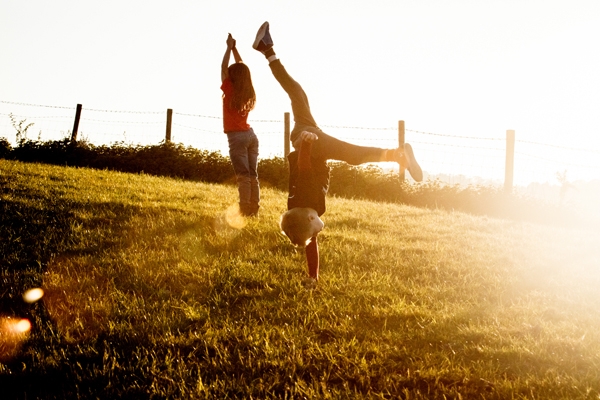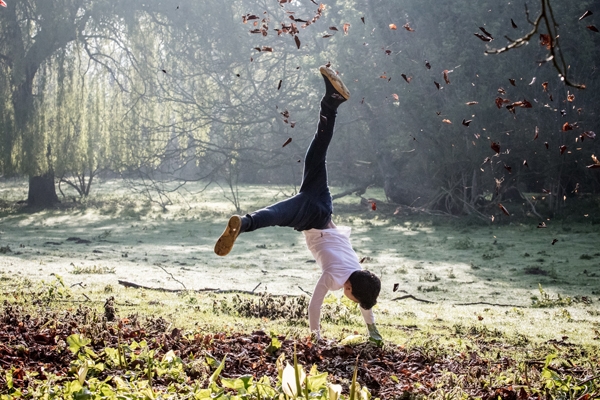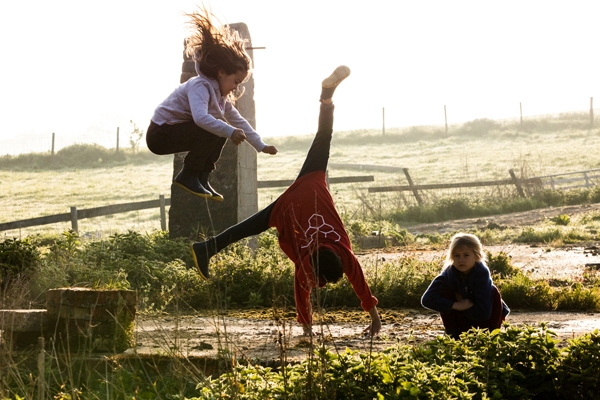Today’s fittest kids would be amongst the least fit from twenty years ago, according to a study by the BBC and the University of Essex. Almost one in five kids leaving primary school in the UK are still over-weight, while the US has seen a recent spike in obesity rates for 2 – 5-year-olds.
Over the past thirty years kids’ roaming area – the measure of how far from home they can venture – has fallen by 90%. Schools reduce play-time and physical education classes, and children spend more time in academic extra-curricular classes and on screens.
You get the picture.
And what’s the result?
Kids are more anxious, depressed and unhappy than ever before.


A long-term study by San Diego State University says up to eight times more American university students meet the criteria for major depression and anxiety disorders than in the previous five decades.
A poll by a UK teacher’s union found 98% of its members knew kids suffering from depression; including 4-year-olds having panic attacks and eating disorders.
The World Health Organization predicts that by 2030 depression will be the world’s leading cause of disease burden because of its related health issues.
There are many compounding reasons for what we’re seeing, but what a lot of this boils down to is the physical and mental restriction of childhood.


Dr. Peter Gray, Emeritus Professor of Psychology at Boston College, has studied and written about this problem at length. He writes in Psychology Today, “play, especially social play with other children, serves a variety of developmental functions, all of which promote children’s mental health. In the absence of such play, children fail to acquire the social and emotional skills that are essential for healthy psychological development.”[1]
Quite simply: it’s a crisis of movement amongst kids.
And scant physical education lessons at school and Saturday morning sports just isn’t enough. Kids needs to actually move more all the time: they need to wiggle, squirm, jump, run, climb, spin, use their hands and their feet outdoors in activities they come up with themselves – they need to be allowed to be kids.
After all, our bodies have evolved over generations to move effectively and efficiently – it would be a shame to let all this awesome biomechanical engineering go to waste!


Our ability to move is connected to our surroundings. The more ‘stuff’ we have in our lives, the more we become constricted and constrained by it. At VivoKids, we believe to move more, we actually need less. Less screens, machines and those so-called educational toys that stop the movement. Moving more with less is being outside more, being with friends more, getting dirty in nature more, using our imaginations more, playing more. Reducing the stuff means more real gains: better relationships, deeper friendships and more time to enjoy them.
At VivoKids we create shoes with less stuff too: no padding, support or restrictions so small feet can grow as close to barefoot as possible. Our approach of creating ‘less shoe’ also means less likelihood of growing with the many problems that come from narrow, tight, padded shoes. We make our shoes sustainable and built to last so we’re not adding to the ‘stuff’.
Our aim is to help you and your kids move more - with less.
Share your experiences of moving more with less using the hashtags #MoveMoreWithLess and #VivoWildKids and let’s spread the love about our barefoot revolution!


REFERENCES:
[1] www.psychologytoday.com/files/attachments/1195/ajp-decline-play-published.pdf
FITTEST TODAY, LEAST FIT 20 YEARS AGO:
REDUCTION OF PLAY-TIME IN THE UK:
CHILDHOOD OBESITY RATES IN THE UK AND US:
https://www.theguardian.com/society/2011/dec/14/children-obese-primary-school-nhs
https://www.cdc.gov/obesity/data/childhood.html
SPIKE IN CHILDREN’S DEPRESSION AND ANXIETY:
http://time.com/4572593/increase-depression-teens-teenage-mental-health/
http://time.com/4547322/american-teens-anxious-depressed-overwhelmed/
WORLD HEALTH ORGANISATION REPORT INTO GLOBAL DEPRESSION:
http://apps.who.int/gb/ebwha/pdf_files/EB130/B130_9-en.pdf
FURTHER READING WITH ARTICLES WITH DR. PETER GRAY:
www.psychologytoday.com/files/attachments/1195/ajp-decline-play-published.pdf

